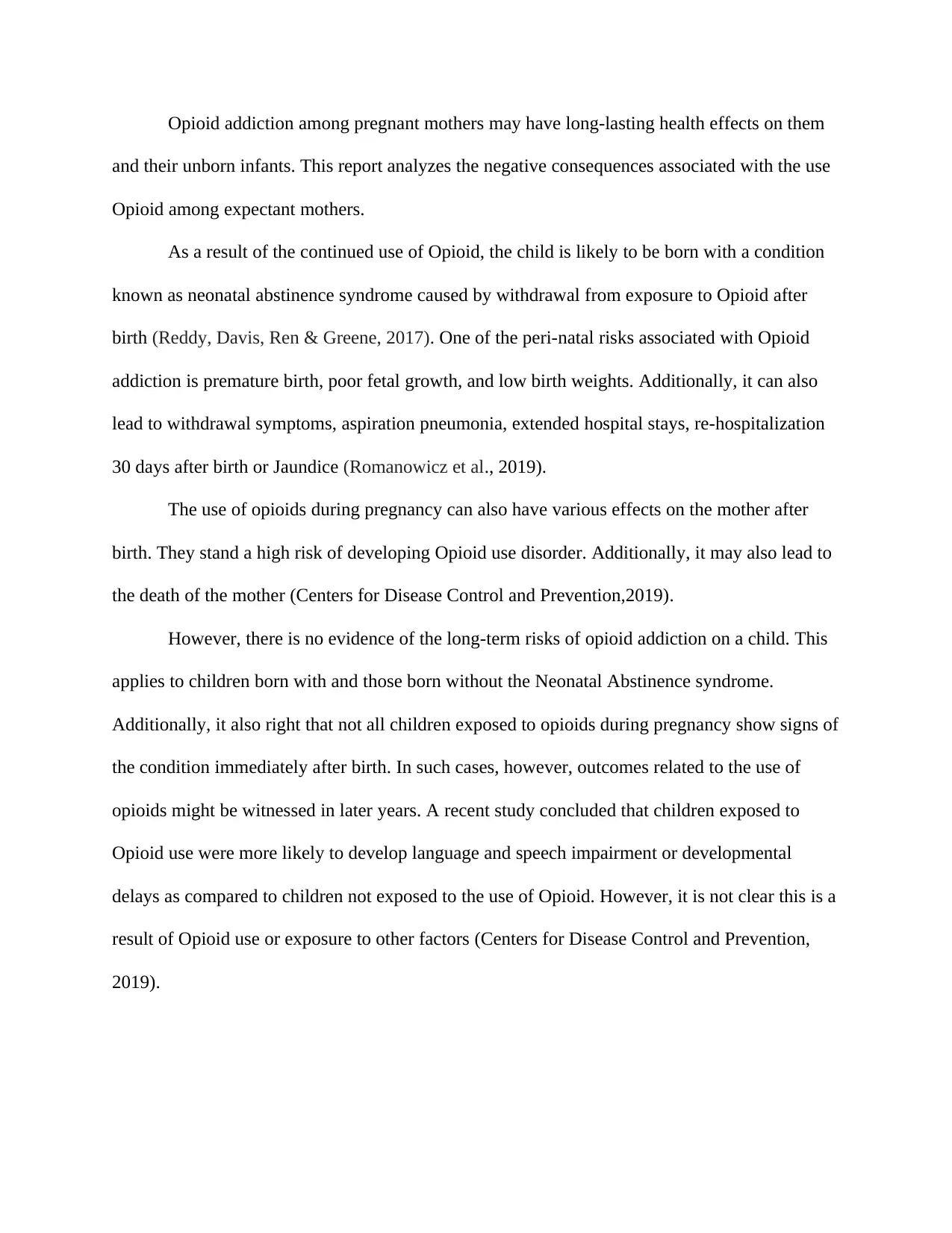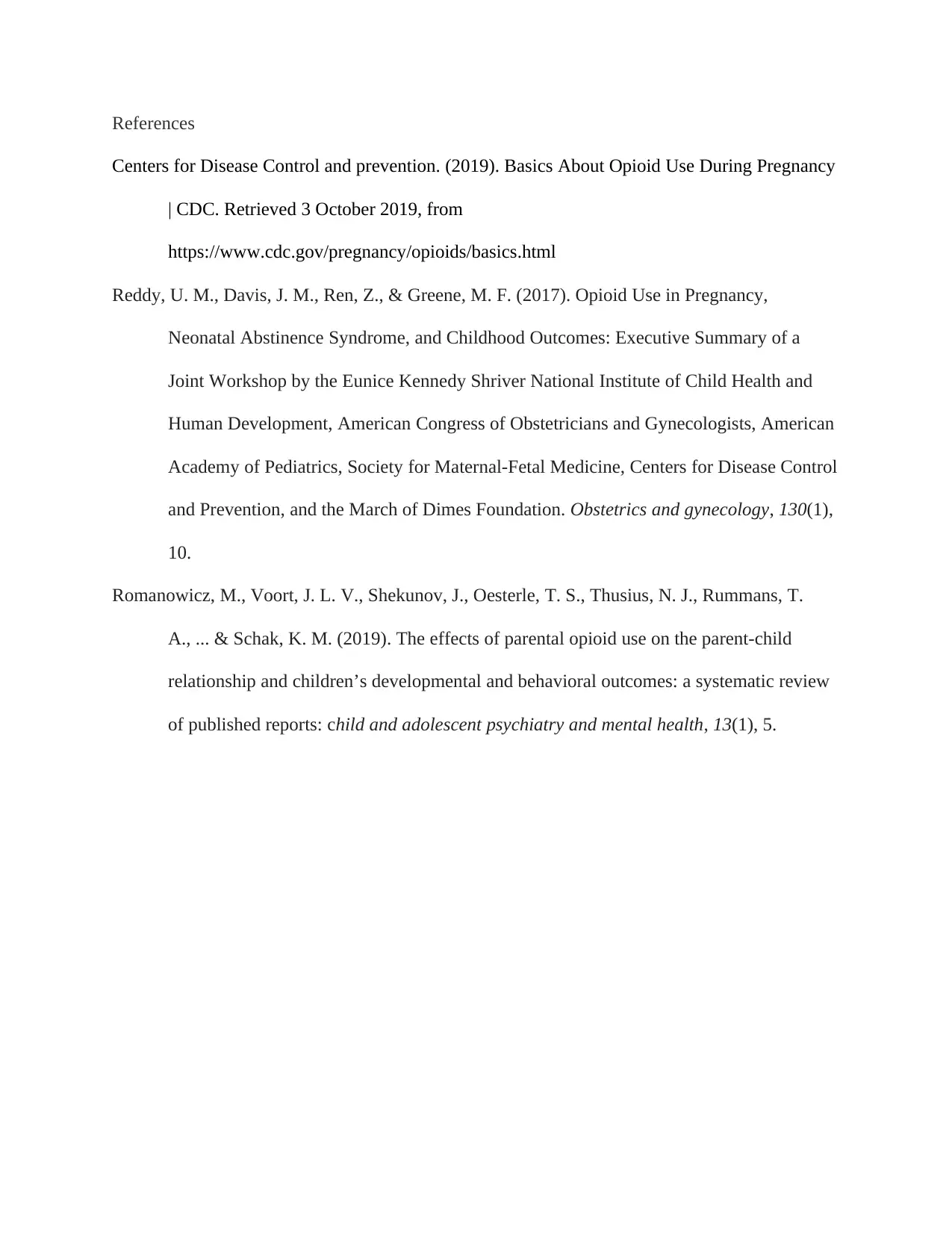The Effects of Opioid Addiction on Pregnant Mothers and Children
VerifiedAdded on 2022/10/01
|3
|540
|19
Report
AI Summary
This report investigates the effects of opioid addiction on pregnant mothers and their children. It highlights the risks associated with opioid use, including neonatal abstinence syndrome, premature birth, and low birth weights. The report also discusses the potential for maternal opioid use disorder and the impact on the mother's health. The study references research that suggests potential developmental delays and speech impairments in children exposed to opioids during pregnancy, although the specific causes are not always clear. It emphasizes the importance of understanding these risks to improve maternal and child health outcomes and provides references to relevant research and resources.
1 out of 3






![[object Object]](/_next/static/media/star-bottom.7253800d.svg)